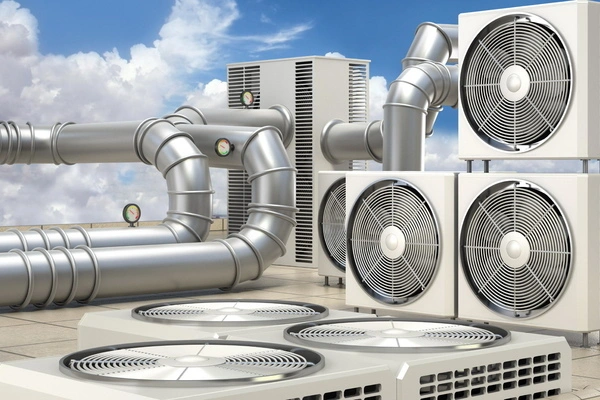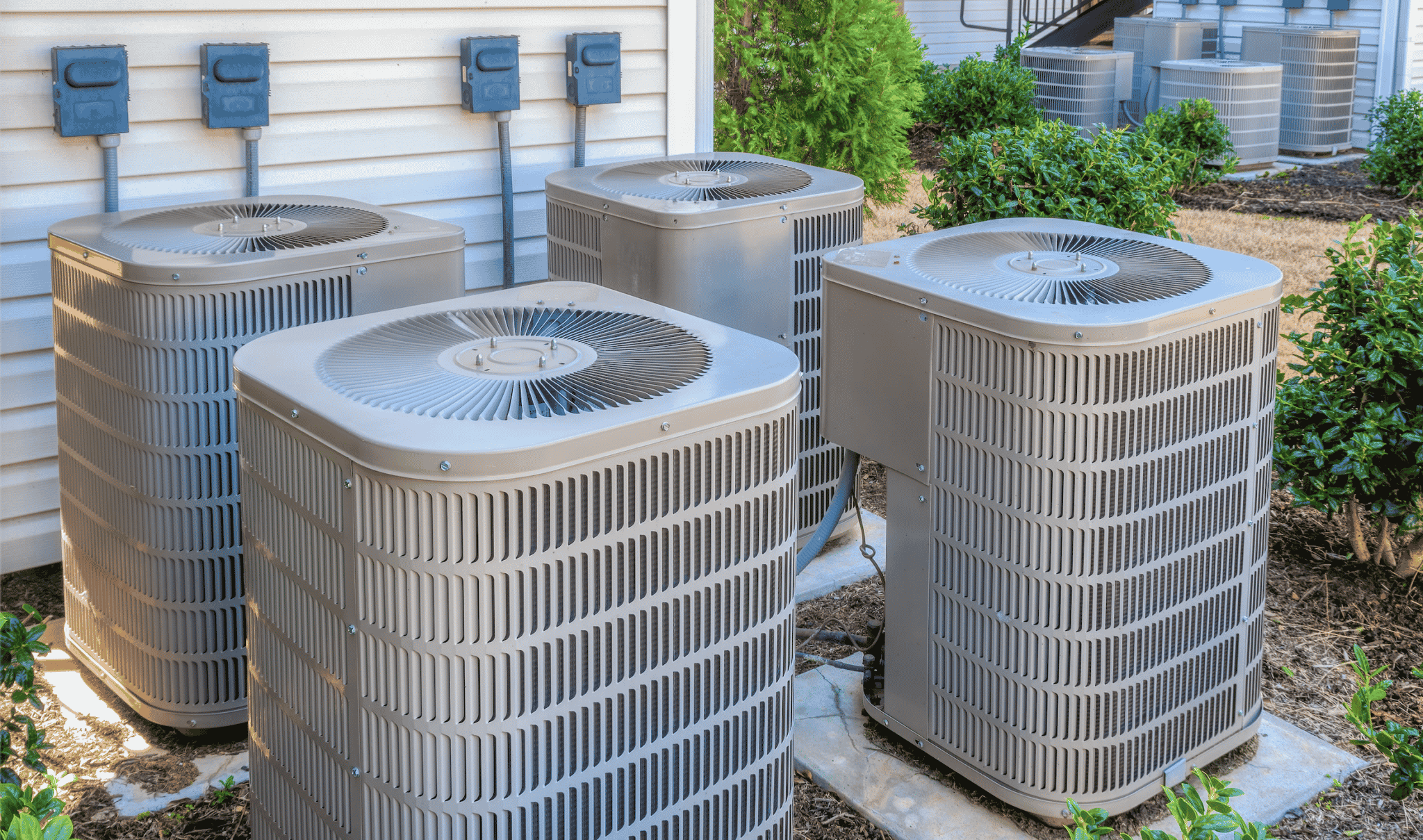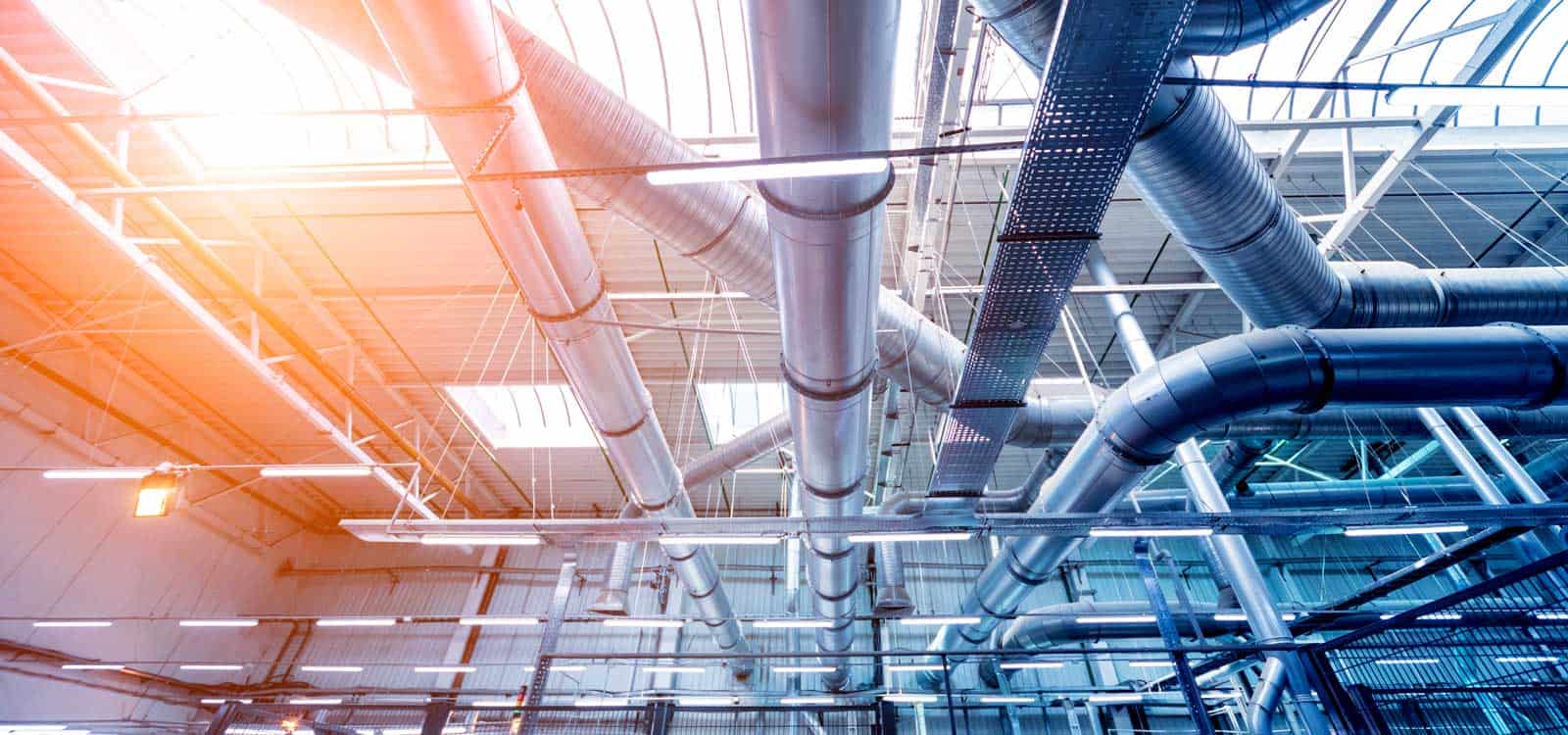Discovering the Necessary Components of an Efficient Heating And Cooling System
A reliable heating and cooling system is improved a number of important components that work in consistency. Each component, from the thermostat to the ductwork, plays a necessary role in preserving comfort and energy efficiency. Comprehending these components is vital for enhancing performance and boosting interior air high quality. As one examines these components, the elaborate relationships in between them reveal insights right into boosting overall system effectiveness. What certain variables contribute most to this performance?
The Function of the Thermostat in Cooling And Heating Effectiveness

Frequently forgotten, the thermostat plays a critical function in the efficiency of Heating and cooling systems. This tiny gadget acts as the main nerve center, controling temperature settings and guaranteeing optimal convenience within an area. By properly sensing the ambient temperature, the thermostat connects with the home heating, air, and ventilation conditioning devices to preserve the preferred climate
A reliable thermostat minimizes power consumption by turning on the a/c system just when essential, thereby avoiding excessive heating or cooling. Modern smart and programmable thermostats enhance this performance better by enabling users to establish timetables and remotely change setups, adapting to daily regimens.
Moreover, the positioning of the thermostat is important; inappropriate place can bring about inaccurate temperature readings, leading to inefficient operation. In general, a well-functioning thermostat not only boosts comfort yet also contributes substantially to energy financial savings and the durability of the HVAC system.
Recognizing the Significance of Air Filters
Air filters offer a necessary feature in heating and cooling systems by guaranteeing that the air distributing within an area remains healthy and clean. These filters catch dirt, irritants, and various other contaminants, avoiding them from being recirculated throughout the setting. By capturing these bits, air filters contribute to enhanced indoor air quality, which can substantially profit occupants' health, particularly those with allergies or respiratory system problems.
Additionally, maintaining clean air filters enhances the efficiency of heating and cooling systems. Stopped up filters can limit airflow, causing the system to function more difficult to keep preferred temperatures, causing raised energy intake and greater utility expenses. Regularly changing or cleansing filters is an essential maintenance step that can lengthen the life-span of cooling and heating devices. Ultimately, understanding the relevance of air filters enables home owners and building managers to take positive actions to assure a well-functioning, reliable heating and cooling system that advertises a secure and comfy indoor environment.

The Capability of the Heater and Warmth Pump
Furnaces and warmth pumps are important parts of a/c systems, liable for offering warmth during cooler months. Furnaces run by heating air with burning or electrical resistance, then dispersing it throughout the home by means of air ducts. They commonly use rapid home heating and can be fueled by all-natural gas, power, or oil, depending on the system kind.
Alternatively, heat pumps transfer heat rather than generate it. They remove warmth from the outdoors air or ground, also in reduced temperatures, and transfer it inside. HVAC experts. This double performance permits heatpump to likewise supply cooling in warmer months, making them versatile options for year-round climate control
Both systems need proper maintenance to guarantee efficiency and durability. While heating systems master extreme cool, warm pumps can be beneficial in moderate climates. Recognizing their distinct functionalities help house owners in picking one of the most appropriate alternative for their home heating needs.
Exploring the Air Conditioning System
The a/c device is a vital element of a/c systems, readily available in various types to suit various demands. Understanding the efficiency ratings of these systems is essential for making educated options about energy usage and expense. This section will explore the varied types of a/c unit and make clear exactly how performance ratings influence efficiency.
Kinds Of Air Conditioners
While different factors affect the choice of cooling systems, recognizing the various kinds offered is crucial for property owners and building managers alike. Central air conditioners are developed to cool entire homes or buildings, utilizing a network of ducts for airflow. Home window systems provide a more localized service, suitable for small areas or look here solitary rooms. Mobile ac unit give flexibility, permitting individuals to move the unit as needed. Ductless mini-split systems are an additional option, combining the efficiency of central systems with the comfort of zoning, as they need no ductwork. Geothermal systems harness the planet's temperature level for energy-efficient cooling. Each type comes with distinct benefits, making informed options essential for reliable environment control.

Performance Scores Described
Understanding efficiency scores is necessary for selecting the right air conditioning system, as these metrics give understanding into the system's performance and power consumption. The most usual rating for a/c is the Seasonal Energy Performance Proportion (SEER), which measures the cooling output during a common air conditioning season divided by the overall electrical power input. A higher SEER shows better performance. Additionally, the Power Efficiency Proportion (EER) is made use of for gauging performance under particular problems. One more essential why not try here metric is the Power Star qualification, which indicates that a system satisfies rigorous power effectiveness standards. By evaluating these scores, customers can make informed selections that not only optimize comfort however also reduce energy expenses and ecological influence.
The Importance of Ductwork and Air movement
Efficient ductwork style and air movement monitoring play vital roles in the overall performance and efficiency of a/c systems. Proper ductwork guarantees that conditioned air is distributed evenly throughout a room, minimizing temperature changes and boosting convenience. Properly designed ducts minimize resistance to air movement, reducing the workload on a/c equipment and ultimately reducing power consumption.
Air movement monitoring includes purposefully positioning vents and signs up to improve the circulation of air. This protects against common concerns such as hot or chilly areas, which can occur when air flow is obstructed or inadequately well balanced. Furthermore, the appropriate air duct products and insulation can further boost performance by minimizing heat loss or gain during air transit.
An efficient ductwork system not only adds to energy savings yet can likewise extend the life expectancy of HVAC devices by reducing unneeded pressure (HVAC experts). Recognizing the value of ductwork and air movement is necessary for attaining peak Cooling and heating system performance.
Normal Maintenance Practices to Boost Efficiency
Normal upkeep methods are crucial for making certain peak efficiency of heating and cooling systems. These practices consist of regular evaluations, cleaning, and essential fixings to maintain the system running successfully. Frequently altering air filters is vital, as blocked filters can obstruct airflow and lower effectiveness. Furthermore, professionals need websites to inspect and clean evaporator and condenser coils to stop getting too hot and power wastefulness.
Annual professional evaluations are also suggested, as experienced professionals can identify possible problems before they escalate. Oiling moving components lessens deterioration, adding to a much longer life expectancy for the system. Furthermore, guaranteeing that the thermostat works appropriately help in preserving suitable temperature level control.

Regularly Asked Questions
Just how Typically Should I Change My Thermostat?
Thermostats ought to usually be replaced every 5 to ten years, depending upon use and technology developments. Normal checks are advisable to ensure peak efficiency, particularly if experiencing inconsistent temperature control or boosted energy expenses.
What Dimension Air Filter Is Best for My HVAC System?
The ideal size air filter for a cooling and heating system varies by system layout. Commonly, it's crucial to speak with the owner's manual or check the existing filter dimensions to guarantee peak performance and air high quality.
Can I Set Up a Heatpump Myself?
Mounting a heatpump separately is possible for skilled people, however it requires knowledge of regional codes and electrical systems. Working with a professional is suggested to ensure proper setup and optimal system performance.
Just how Do I Know if My Ductwork Is Reliable?
To identify ductwork effectiveness, one must check for leaks, procedure air movement at vents, inspect insulation quality, and assess temperature level distinctions between supply and return air ducts. Expert analyses can supply thorough insights right into general performance.
What Are Signs My Heating And Cooling Requirements Immediate Maintenance?
Signs that a HVAC system needs prompt upkeep consist of uncommon noises, irregular temperatures, enhanced energy costs, undesirable odors, and frequent cycling. Resolving these problems immediately can stop additional damages and warranty top system performance.
Air filters serve a crucial feature in Cooling and heating systems by guaranteeing that the air circulating within a space continues to be healthy and tidy. Furthermore, maintaining clean air filters boosts the effectiveness of Heating and cooling systems. Ductless mini-split systems are another option, integrating the efficiency of central systems with the comfort of zoning, as they need no ductwork. Recognizing effectiveness ratings is necessary for picking the right air conditioning device, as these metrics supply insight right into the system's efficiency and power intake. The finest dimension air filter for a Heating and cooling system differs by system layout.